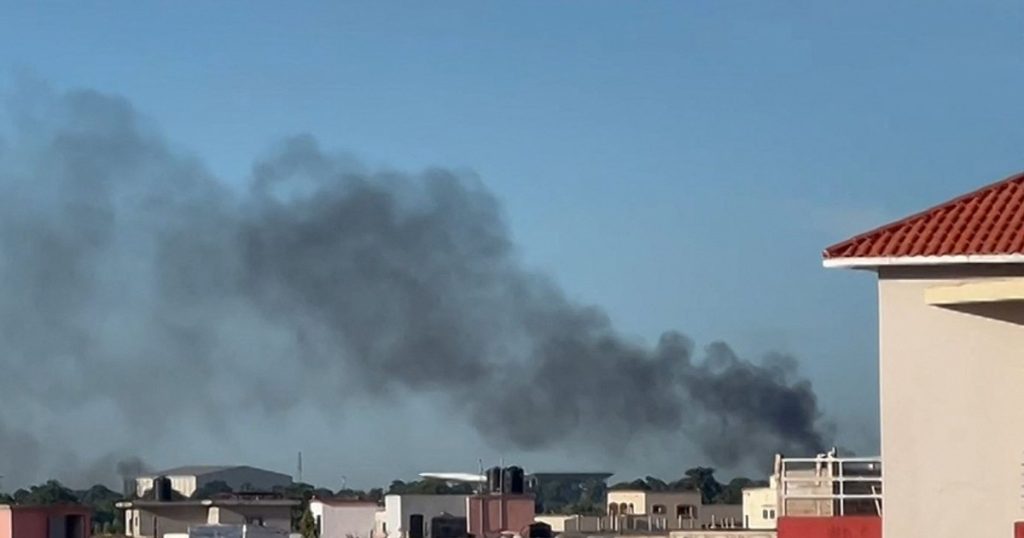The recent attack by the al-Qaeda-linked group JNIM on Mali’s capital Bamako has left more than 70 people dead, with some reports suggesting the death toll could be even higher. The attack targeted an elite police training academy and the nearby airport, sparking shock and anger in the West African country. The security source revealed that 77 people were killed and 255 injured in the attack, while an official document put the toll at around 100. Diplomats in the region estimate the death toll to be in the 70s, with hundreds believed to be dead or injured due to the attack.
Mali has been experiencing unrest for over a decade, with armed uprisings in the north spreading to neighbouring countries in the Sahel region. The attack undermines claims by the military, which took power in a coup in 2021, to have stabilized the situation after the departure of French troops and seeking security assistance from Russia. The military rulers have acknowledged some losses in the recent attack, with JNIM claiming to have killed and wounded “hundreds” of their opponents, including members of the Russian mercenary group Wagner. JNIM also published videos on social media showing their fighters destroying aircraft at the airport, including a plane used for humanitarian work by the World Food Programme.
The attack has significantly impacted humanitarian efforts in Mali, with the damaged aircraft reducing the capacity to provide aid to civilians in remote areas. The international community has condemned the attack, with United Nations Secretary-General Antonio Guterres, neighbouring Senegal, and the African Union Commission Chairman expressing their outrage. The embassies of France and the United Kingdom have also denounced the violence. Jean-Herve Jezequel, Sahel project director at the International Crisis Group, suggested that the attack could be aimed at sending a message to the Malian authorities to increase security in urban areas and reduce troops in rural regions where armed groups have established strongholds.
The situation in Mali remains volatile, with ongoing tensions between the authorities and armed groups posing a threat to stability. The attack on the police training academy and airport highlights the persistent security challenges faced by the country, despite efforts to address the ongoing conflict. The international community and humanitarian organizations are working to support Mali’s recovery and maintain aid operations in the face of escalating violence. It is crucial for the Malian government to reassess its security strategy and prioritize the protection of civilians in both urban and rural areas to prevent further attacks and secure the future of the country.













